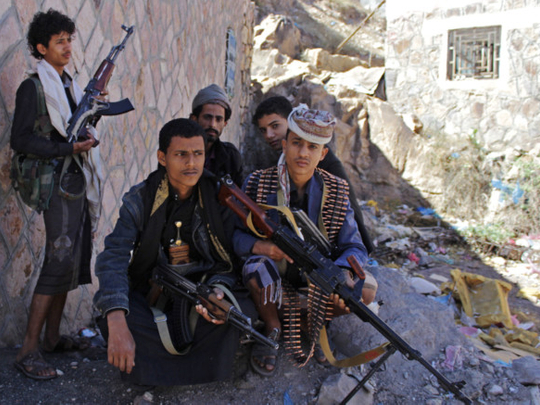
Beirut: Preoccupied by the War in Yemen and continued struggles against extremists run amok throughout the region, Arab Gulf leaders will gather in Saudi Arabia on Tuesday to coordinate various planks and, if possible, secure French assistance to counter Iranian aspirations to dominate, once again, Arab security concerns.
President Francois Hollande of France will attend the GCC semi-annual Summit in Riyadh, thereby becoming the first Western leader to do so since the creation of the alliance in 1981 that, in what is a major development, will raise eyebrows in the US In fact, and while Paris is a pillar of Western interests, this particular invitation sends specific messages to Washington, even if King Salman Bin Abdul Aziz ushered in the most pro-American team ever in his country. It was, in all likelihood, a reminder that the overtures to Iran and the consequences of the latter’s emboldened initiatives throughout the Arab World were closely tied.
At least five specific concerns were likely to be discussed by GCC officials during this summit.
First, and inevitably, the focus will be on Yemen, as GCC leaders try to figure out how to permanently defeat the Al Houthis, which is not yet a done deal. Notwithstanding the spin, King Salman and his allies will appraise how Francois Hollande will help—beyond siding with Sunnis, which is not a French policy even if various experts advance it as such, simply because France does not pursue sectarian strategies. Naturally, the same is true for Barack Obama who is not tilting towards Shiites (though he has a preference for Iran, which is something different, given the minority status of Shiite Persians in their own country), even if both are engaged in the fight against extremist groups like “Fahesh”, to use Prince Turki Al Faisal’s term for Daesh.
Second, one must also assume that the assembled leaders will focus on Iran and wonder how they can balance the expected consequences of a potential P5+1 agreement (pushed for by the US even if European powers have mixed views on the matter) by June 30, with long-term GCC interests that focus on stability and prosperity. Hollande probably accepted to attend the summit to carve a role for France in the next phase, and while it is natural for him to advance French interests, it was ironic to note that the King Salman tilt towards Paris mimicked the late King Faisal’s preferences for Paris under Charles De Gaulle while cajoling Washington by appointing the latter’s favourite princes to positions of authority.
Third, and in the same vain, it was natural for GCC States to recalibrate their responses to a putative Iranian acquisition of an atomic weapon over the long-term because, and this must be acknowledged openly, a P5+1 accord will only postpone the inevitable. Of course, Washington will emphasise its nuclear umbrella that was last argued by then Secretary of State Hilary Clinton when she offered Riyadh and its regional partners such protection, though GCC leaders will insist on yet another balancing factor, namely much closer military ties with France and Britain, which is what Hollande will sell. For his part, King Salman will ask Hollande whether he would sacrifice Marseille for Riyadh in the same way De Gaulle asked John F. Kennedy in 1961 whether Washington would forgo New York to save Paris. The monarch is likely to hear a similar response and that is why he and his GCC allies will insist on reciprocity and the acquisition of advanced weapons to create a credible deterrence against Iran. In this same line, Hollande, who is a Western leader through and through—which means he would place Western interests ahead of GCC ones—will probably also raise the roles of Russia and China and, based on what he hears from them, recalibrate French/Western policies towards Moscow and Beijing. Based on these same conversations, GCC leaders would probably recalibrate their ties with India and South Korea as new alliances emerge over the horizon, features in GCC policies that are poorly understood but that are increasingly vital for indigenous decision-makers.
Fourth, summiteers will likely hone various ideas about the price of oil and the impact that a P5+1 deal with Iran will have after the latter re-enters the markets once sanctions are lifted. Lest one assume that these are esoteric subjects that are seldom negotiated at high-level summits, it behoves analysts to concentrate on what truly interests Western powers—access at reasonable prices—and GCC oil producers— unimpeded admission at secure rates.
Finally, and since this meeting occurs a week before the Camp David gathering where several GCC leaders will be present, one presumes that some of the items on that agenda—secret for outsiders but not for participants—will be raised too. The meeting would have benefitted from the presence of Sultan Qaboos of Oman, who is not likely to be in Riyadh for health reasons, though he would have added significantly to the proceedings. Nevertheless, positive results are possible, especially in terms of the necessary coordination that GCC member-states are supposed to practice, but routinely fail doing so, now that Riyadh through down the gauntlet. With the support of France, no less.












